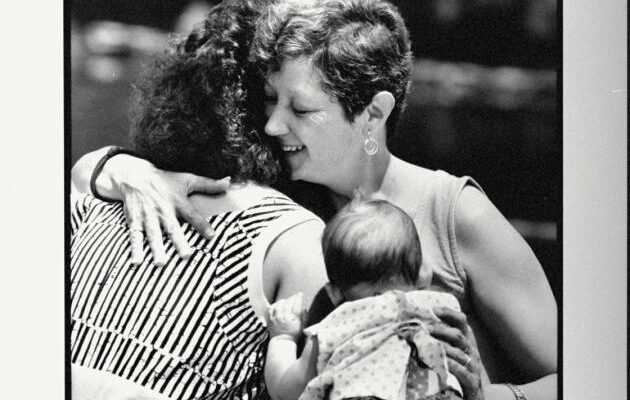NarrativeHer pseudonym, “Jane Roe”, gave her name to the 1973 judgment legalizing the voluntary termination of pregnancy in the country. Norma McCorvey, however, later became a fervent activist in the anti-abortion camp. Today, the Supreme Court overhauled by Donald Trump could reconsider this historic right.
Jane Roe. If all Americans, or almost, know this name, fewer are those who associate a face with it. Behind this pseudonym has long been hidden Norma McCorvey, a Texan at the origin of a historic decision of the Supreme Court of the United States. In 1973, Roe v. Wade – the second part refers to then-Dallas prosecutor Henry Wade – legalized abortion in the country.
Since then, voluntary termination of pregnancy (IVG) is authorized there until the fetus is considered viable, approximately twenty-four weeks. A true cornerstone of women’s right to control their bodies, this decision could soon be challenged by a Supreme Court overhauled under the Trump era.
Five years after her death in 2017 at the age of 69, Norma McCorvey remains an elusive figure with a complex legacy.. Symbol of the right to abortion, then passed into the anti-abortion camp, she is however far from the caricatures in which some have wanted to lock her up.
“I was not the wrong person to become Jane Roe. I was not the right person to become Jane Roe. I’m just the one who became Jane Roe, from “Roe v. Wade”. And the story of my life, with all its flaws, is a small piece of history. Norma McCorvey in her autobiographical story, “I Am Roe”, published in 1994
In an autobiographical story, I Am Roe (HarperCollins, untranslated), published in 1994, she writes: “I was not the wrong person to become Jane Roe. I was not the right person to become Jane Roe. I’m just the one who became Jane Roe, from “Roe v. Wade”. And the story of my life, with all its flaws, is a small piece of history. »
A tormented childhood
Born in 1947, Norma McCorvey grew up in a poor family in Houston, Texas.
His mother is an alcoholic; his father, a member of Jehovah’s Witnesses, ran away. When she was a teenager, her heart oscillated between girls and boys – which her mother, very religious, who beat her, could not bear. Married at 16, immediately separated, she has a first child whose custody is entrusted to her mother. Norma admits that she takes drugs and abuses alcohol.
Two years later, she gives birth to another daughter, whom she has adopted. At 22, new pregnancy. The short-haired brunette doesn’t want the baby, but Texas still doesn’t allow abortion. The young woman does not have the means to go to another state where she could legally have an abortion and fears ending up in a sordid clandestine clinic. She is addressed to two lawyers who have just graduated, Sarah Weddington and Linda Coffee, who convince her to challenge, in court, the law prohibiting abortion in Texas.
You have 65.17% of this article left to read. The following is for subscribers only.
